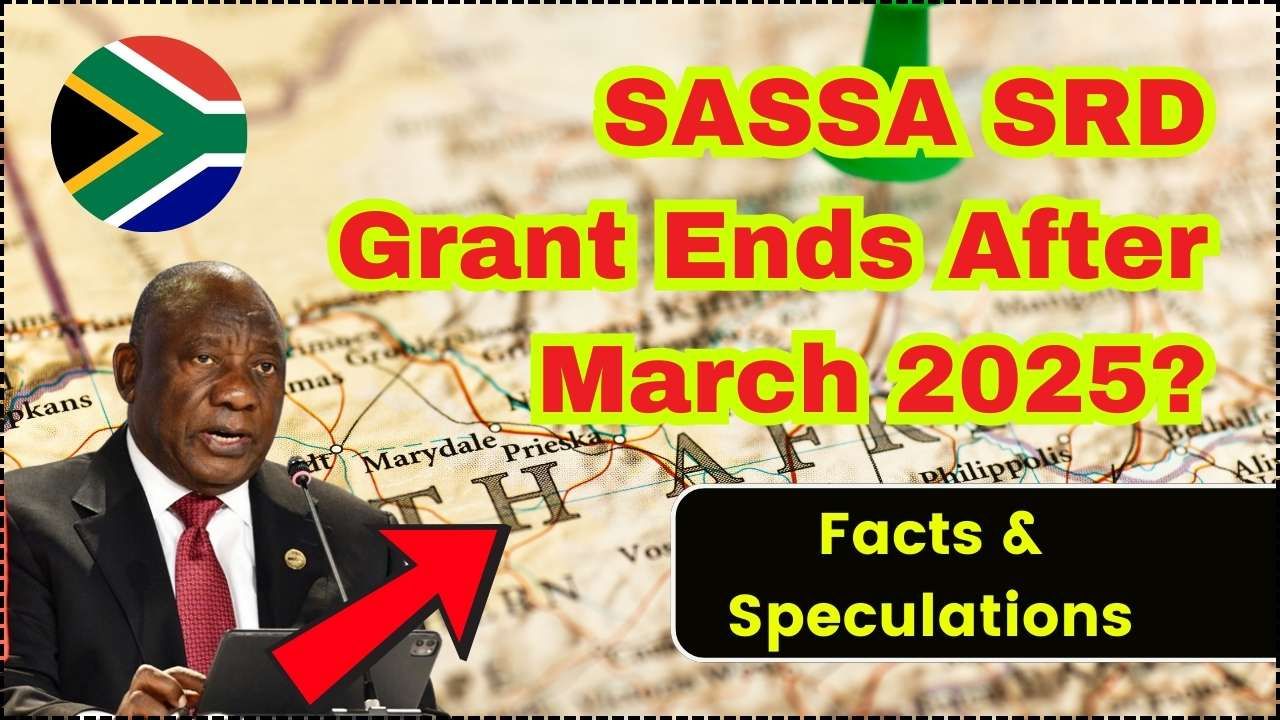March 2025 is when the SASSA SRD funding is scheduled to expire. This handbook offers comprehensive details on eligibility, the application procedure, payment options, and helpful tips for getting ready for the grant’s end. To continue getting assistance through various government programs, be aware and plan.
SASSA SRD Grant Ending in March 2025:
A vital source of assistance for millions of South Africans experiencing unemployment and financial difficulties, particularly during the COVID-19 epidemic, has been the SASSA SRD (Social Relief of Distress) award. But, given that the SRD award will expire in March 2025, both present grantees and prospective applicants must comprehend the ramifications of this modification. This guide will explain all you need to know, from the qualifying requirements to the actions you must take to guarantee you continue to benefit before the grant expires, regardless of whether you are a first-time applicant or someone who has been receiving the grant.
The SASSA SRD award has been a lifeline for many South Africans, helping them overcome financial hardship and unemployment challenges. It is essential to be informed about the latest developments and take proactive steps to prepare for the grant’s March 2025 expiry.
You can create a more stable financial future by ensuring your application information is current, applying for alternate assistance, and looking into new revenue streams.
What is the SASSA SRD Grant?
The South African government implemented the SASSA Special Relief of Distress (SRD) award as a short-term assistance program for those who experienced income loss due to the COVID-19 epidemic. The goal was to give money to people who couldn’t maintain themselves due to unemployment or income loss, particularly in an economy severely affected by the epidemic.
The SRD award was initially a temporary solution. However, The grant has been extended several times and is scheduled to expire in March 2025 due to persistent economic difficulties.

Qualifying persons get a direct payment of R350 per month to assist with essential expenses, including utilities, transportation, and food. Although the SRD award has a set expiration date, the government may consider additional extensions or other relief initiatives based on the state of the economy.
Eligibility:
The following requirements must be fulfilled to be eligible for the SASSA SRD grant:
- Candidates must be at least eighteen years of age.
- Citizenship: You must be a refugee, permanent resident, or citizen of South Africa.
- Employment Status: Under existing legislation, you must be jobless or make less than R350.
- No Other Government Grants: You are not eligible for other government aid types, including disability grants or child support.
Apply for the SASSA SRD Grant:
The SASSA SRD award can be applied for in three different ways:
1. Online Application
The most popular and practical approach is this one:
- Go to the SASSA SRD application page on the official website.
- Create an account or log in.
- Provide your personal information and income status when completing the online application.
- Send in your application to be considered.
2. WhatsApp Application
You may apply by messaging 082 046 8553 on WhatsApp. Even people without an internet connection can use the system to help them through the procedure.
3. USSD Code Application
You may apply if you don’t have a smartphone by using your phone to dial the USSD number 1347737#. The application stages are talked through in this easy procedure.
Payment Methods:
Following approval of your application, you will be paid each month through a variety of channels:
1. Bank Account Transfer: Payments will be put straight into your bank account if you have one. To prevent payment delays, ensure your financial information is current.
2. Retail Store Collection: Participating retailers like Pick n Pay and Boxer are where those without bank accounts may pick up their SRD payment. When your payment is prepared for pickup, you will get the notification.
3. Cash Payments: Payments may be made at specified locations. For information about the closest collection location, consult SASSA’s official announcement.
Effect of the SRD Grant:
The SRD award has significantly improved the lives of South Africans by assisting people in overcoming financial hardships and lowering poverty. More than 18 million people have benefited from the award since it began, and many have said that the R350 has helped them pay for necessities like food and transportation.
The SRD award has served as a safety net for many, particularly during high unemployment and company closures. More than 80% of grant beneficiaries use the funds to purchase food, and a sizable percentage also use them to pay for transportation expenses to find employment, according to SASSA data.
What Happens After March 2025?
There are concerns regarding what will happen once the SRD funding expires in March 2025. Even if the administration hasn’t yet revealed any fresh aid initiatives, further assistance measures may be implemented depending on the state of the economy.
For the time being, receivers ought to:
- Keep Up to Date: For information on the status of the grant and any new initiatives, often visit the SASSA website and other government communication channels.
- Make a plan: Look for alternative revenue streams, such as jobs, small business endeavors, or other government assistance programs.
Future options may include social welfare programs targeted at long-term economic recovery, vocational training programs, or prolonged unemployment insurance.
How to Avoid Payment Delays?
Use these easy guidelines to make sure your SRD payment proceeds without interruption:
- Update Your Information: Use the SASSA online portal to review and update your financial and personal information periodically.
- Reapply Occasionally: SASSA may ask you to update or verify your eligibility. Make sure you reapply on schedule.
- Check Your Status: You may always use the SASSA website or the SASSA WhatsApp number to see the current status of your application or payment.
- Verify the Correct Contact Information: Keep your phone numbers and email addresses up to date since inaccurate or out-of-current information might delay contact.
